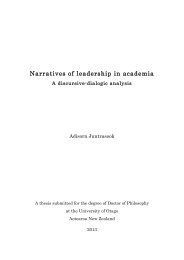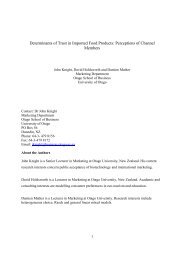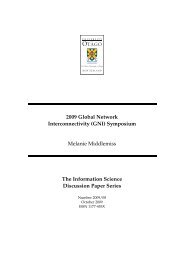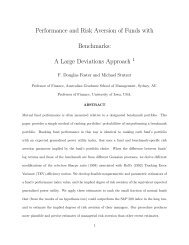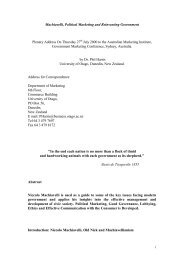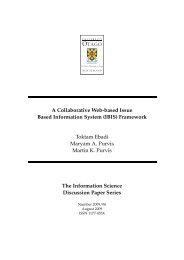Where is R2P grounded in international law? Anne-Marie Judson A ...
Where is R2P grounded in international law? Anne-Marie Judson A ...
Where is R2P grounded in international law? Anne-Marie Judson A ...
You also want an ePaper? Increase the reach of your titles
YUMPU automatically turns print PDFs into web optimized ePapers that Google loves.
IS <strong>R2P</strong> NECESSARY AT ALL?<br />
After research<strong>in</strong>g <strong>R2P</strong> for the past year I believe that <strong>R2P</strong> does not add anyth<strong>in</strong>g new<br />
to the already ex<strong>is</strong>t<strong>in</strong>g <strong>law</strong>s that are <strong>in</strong> place for the protection of civilians. The<br />
responsibility of states to protect their citizens from harm <strong>is</strong> strongly <strong>grounded</strong> <strong>in</strong><br />
<strong>in</strong>ternational <strong>law</strong>. States are still bound by these duties <strong>in</strong> <strong>in</strong>ternational <strong>law</strong> to prevent<br />
and protect. They are also bound to the Charter that stops states <strong>in</strong>terfer<strong>in</strong>g <strong>in</strong> the<br />
<strong>in</strong>ternal affairs of other states. The Security Council <strong>is</strong> still the only <strong>in</strong>ternational body<br />
that can determ<strong>in</strong>e whether a situation constitutes a threat so serious that it<br />
jeopard<strong>is</strong>es <strong>in</strong>ternational peace and security. The states still determ<strong>in</strong>e whether they<br />
w<strong>is</strong>h to give military ass<strong>is</strong>tance, military capacity and air force ass<strong>is</strong>tance to the<br />
Security Council <strong>in</strong> the event of a threat to <strong>in</strong>ternational peace and security. States<br />
can still derogate from <strong>in</strong>ternational civil and political rights dur<strong>in</strong>g a state of<br />
emergency effectively over-rid<strong>in</strong>g any claim to human rights that the civilians had<br />
dur<strong>in</strong>g civil d<strong>is</strong>order.<br />
States can still use civilian upr<strong>is</strong><strong>in</strong>gs as a reason for the state of emergency; they can<br />
frame the civilians as be<strong>in</strong>g a terror<strong>is</strong>t threat <strong>in</strong> a state of siege or threaten<strong>in</strong>g a civil<br />
war and therefore take away rights to free association, free assembly and freedom of<br />
media. The state effectively still controls the citizens’ right to freedom to choose or<br />
elect a new government <strong>in</strong> a state of emergency situation. Unfortunately <strong>R2P</strong> adds<br />
noth<strong>in</strong>g new to help civilians dur<strong>in</strong>g a state of emergency <strong>in</strong> a political upr<strong>is</strong><strong>in</strong>g. It<br />
clarifies and declares the duties of states but it cannot and does not have the ability to<br />
enforce. Th<strong>is</strong> clarifies the fact that <strong>R2P</strong> <strong>is</strong> not necessary. The obligations of states are<br />
already well def<strong>in</strong>ed.<br />
<br />
122



